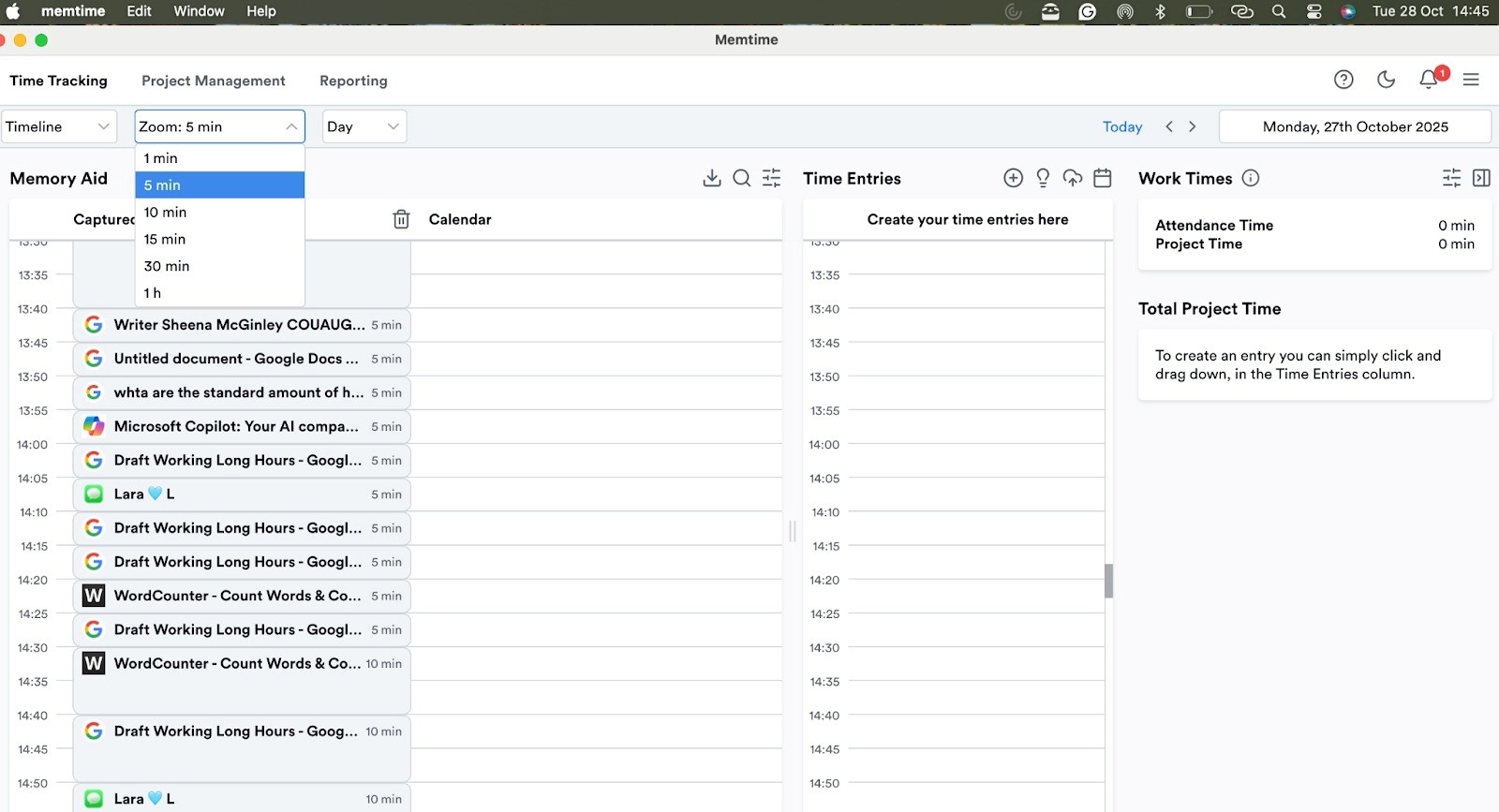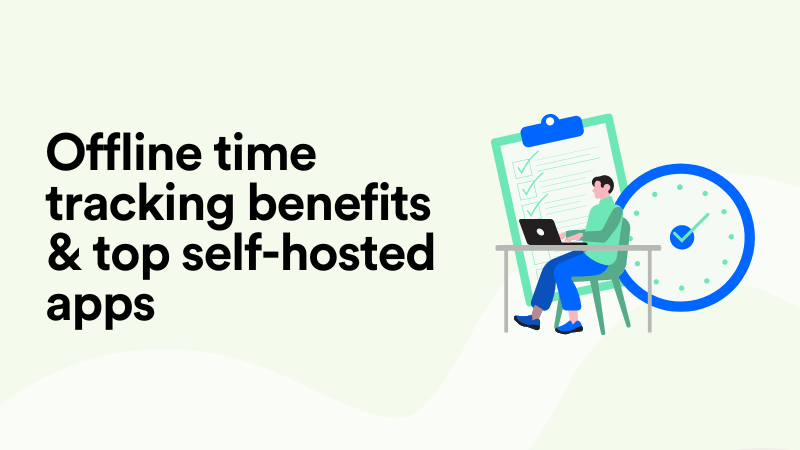Working Long Hours? Here's How To Survive & Stay Profitable

Does it ever feel like you’re working 80 hours a week as opposed to the standard 40-hour week we’re meant to be working? Listen, I get it, I’m also a deadline-fuelled freelancer, and well aware that you’ve got to take the work while it’s there. That said, your mental and physical health shouldn't suffer as a result of long work hours. For starters, you can:
- Include micro-breaks
- Eat (real) food to fuel your brain
- Establish those boundaries to help you endure long work weeks
You're smart for planning your recovery, not weak for needing it. Strategy, not sacrifice, is required for sustaining long hours over a period of time. So, to help you make the most of the grind, this article will look at how you can take care of yourself when working beyond the regular 9-to-5.

Key takeaways
- Freelancers frequently experience cycles of abundance and scarcity, so overcoming demanding weeks calls for a framework that incorporates rest, boundaries, and strategic planning.
- Physical and mental exhaustion accumulates over time. Performance and well-being begin to deteriorate when burnout becomes normalized in the absence of intervention.
- If you don’t know where your time goes, you’re not just overworked – you’re under-informed. Time tracking tools help to automatically capture your working day, allowing freelancers to bill accurately.
- Freelancers must set clear expectations around availability, scope, and urgency. Contracts, rush fees, and saying no to low-value work aren’t just protective – they’re professional.
How long to work (before it backfires)
If you work seven days a week, an 80-hour week equates to almost 12 hours per day. Even if you “treat yourself” to weekends off, you're still working approximately 16 hours a day for a five-day week. No wonder you’re feeling fried. But you also know you need to make the proverbial hay while the sun shines.
As a fellow freelancer, I know that it never rains but it pours, and the power to “push through” to meet a deadline needs to be tapped regularly. Some weeks, there’s no work and I’ve to force myself to chill out. Why? Because I know this downtime is precious. It’s a reserve I can draw on when the next sprint hits.
For instance, the last three weeks have been relentless. I’ve landed the Holy Grail of freelance gigs – a database of articles I can pick and edit at will. But once they’re gone, they’re gone. And I’m not the only freelancer with access to this database, so every minute I’m not working, that opportunity pool shrinks.
As such, I have been working from 6am until 9pm daily (while attempting to parent). And the only thing getting me through is knowing that it’s finite and I’ve got a framework to follow. Before we get to that, however, let’s remind ourselves of the downsides of working these hours for a prolonged period.
Disadvantages of working long hours
Although working long hours for protracted stints may seem like a necessary part of being a freelancer, there are tangible and frequently overlooked drawbacks, including:
The physical toll
Let me guess: you're bolting awake at the same hour (usually 4 am) nightly. Working without sufficient breaks inevitably leads to sleep disruption because you haven't given yourself adequate downtime before bedtime.
Over time, this fatigue becomes chronic, and your body pays the price, particularly if you're sitting sedentary for hours. If this becomes the norm over prolonged periods, the risk of cardiovascular issues, weight gain, and posture-related pain inevitably increases.

Questionable output
While it's tempting to think that working more hours will result in more opportunities, the truth is that chronic fatigue impairs your performance. Mistakes creep in, your creativity stalls, and the work you’re doing may take longer than necessary.
Moreover, if you're producing work riddled with mistakes, your existing clients may be less inclined to request further work. Which brings us neatly to…
Professional and personal pitfalls
In case it isn’t becoming abundantly clear; if long hours are not strategically managed, they may backfire. You run the risk of undercharging, overcommitting, or halting your growth if you don't have clear boundaries or billing procedures.
Long work hours and mental health
If you’re thinking, “Surely this should’ve been covered under the preceding ‘Disadvantages’, header?” You’re absolutely right. But mental health is so important that it deserves its own section. Without it, you literally have nothing.
With that in mind, there’s some tell-tale signs that your mental health is being eroded. After all, long work hours can have a creeping negative impact on your mental health, so you won’t even notice when things start to wane.
Here’s a check list to reference:
- Lethargy: At first, it just feels like pervasive tiredness.
- Being snappy: Then, you start forgetting things, being unusually curt with colleagues and loved ones alike.
- Buzzing (in a bad way): You feel that heady mix of being both worn out yet totally wired.
- Breaks become a bother: You end up blanking them in favor of getting “just this one last thing” done.
- Rush through mealtimes: Or, worse, you increasingly find yourself chowing down on a protein bar at your workstation
- And tomorrow, and tomorrow, and tomorrow: You find yourself promising yourself that you'll relax later, but "later" never arrives.
- Sleep becomes dichotomous: When sleep does come, it's fleeting and akin to a blackout. Otherwise, you're counting the cracks in the ceiling, thinking about what you could be doing instead of lying there.
- Impending sense of perpetual doom: Everything, irrespective of size, feels HUGE.

How to work long hours without burnout – a framework
The internet is full of blog posts boasting, “I work 10–12 hours a day for years without burnout!” That’s fine – but the real question is, why would you want to do that for years? You need to ask yourself, is it worth it?
While it is possible to work long hours without experiencing burnout, you should only approach it as a system for a defined time, rather than wielding it as a badge of brilliance. The below explains how to get through demanding work weeks without compromising your relationships, long-term objectives, or mental well-being.
1. Recognize the risks
Long hours aren’t just exhausting; they can also be damaging if you don’t manage them effectively. We've outlined some of the accumulative downsides (poor posture, missed meals, mental exhaustion, emotional detachment, and sleep issues), all of which can occur rapidly.
Productivity then drops, and relationships (both professional and personal) start to suffer. The most insidious thing about this is that it may not occur to you until you are well into it. Identifying these risks early is key to putting protections in place before burnout occurs.
2. Include recovery in your routine
Sleep, movement, food, and recreation aren’t optional. Consider them a foundational framework.
- Rest: Sleep deprivation quickly accumulates and impacts mood and concentration.
- Exercise: If you're thinking “But I don't have time to do exercise?!" I'm talking about some simple stretches in between tasks or taking a ten-minute walk. Both can help to reset your brain.
- Nourishment: Proper round meals should not be substituted with sugar and caffeine.
- Relaxation: You need rituals to help you unwind at the end of the day. Light a candle, have a shower, or read. These little habits can signal downtime to your brain. Remember, recovery is what enables you to continue working, it’s not a reward for completing tasks.
3. Plan your week purposefully
An 80-hour week doesn’t mean grinding nonstop; you need rhythm. With that in mind, you should divide your day into concentrated blocks and take proper breaks.
- Theme your days: To mitigate decision fatigue, assign a theme to your days. For instance, you could do admin on Monday and deep work on Tuesday.
- One non-work day: Even if you're planning to work for a seven-day stretch nonstop, you need to set aside one non-work day. This is non-negotiable (just to add one more "non" to the mix).
- Manage microbreaks: Lastly, your micro-breaks should be scheduled, safeguarded, and shown up for – just like meetings. View them as necessary maintenance, not distractions or diversions.
4. Manage clients accordingly
Freelancers frequently experience pressure to be available all the time, but that's a one-way street to burnout. Therefore, you need to establish and adhere to clear channels of communication. We have more on that below in our 'How to stop working long hours' section.
5. Reinterpret the hustle
To succeed, you don't have to romanticize working excessive hours. You are more than your work; it's not your entire worth. Know that you're free to change your mind if the grind becomes too much, there’s always a way.
The truth is, long hours aren’t the real problem – broken systems are. If you build a functioning framework that protects your energy, you can handle the workload without losing yourself to it.
If you’re already feeling tired, detached, or dreading the day ahead, don’t wait for things to spiral. You know the signs of burnout. Act early, or better yet, start making small, sustainable changes today.

How to stop working long hours
We all know what it feels like to let the day run away from you. Moreover, long hours without structure aren’t impressive; they’re just cumulatively chaotic. If you’re constantly busy but unsure where your time goes, you’re not just overworked – you’re under-informed. Time tracking is essential not just for billing, but for spotting inefficiencies and reclaiming control over your schedule.
Reducing those energy leaks should be your first priority:
- Steer clear of context switching: As readers who are familiar with your work will already know, multitasking is not your friend. Try organizing related tasks into groups instead, as this will help you stay focused and save energy.
- Every day, establish three priorities: Don't think of anything else completed as a baseline; it's a bonus.
- Automate/Use templates: Automate repetitive tasks to reduce mental strain and speed up your work.
- Establish (and maintain) boundaries: Contracts should define scope, deadlines, and revision limits.
- Refuse low-value work: Not everything is worthy of your limited time.
- Charge for urgency: If a client needs something fast, your time has extra value, so bill for it accordingly.
- Don’t apologize for protecting your time: Boundaries aren’t an indulgence; they’re what keep you in business!
To make all of this easier, consider Memtime your silent co-worker. Memtime keeps track of everything in the background while you work, regardless of whether you are putting in long hours out of ambition or necessity. A major plus side? You won't forget to set any timers!

All your emails, documents, and apps are automatically logged. Moreover, every minute of overtime is recorded so you can accurately bill and determine how much is "too much." Because putting in a lot of effort is one thing. Working blind is another.
So, if you want to change your working week for the better, so it's not all work and no play, give our 14 day free trial (no credit card deets necessary) a whirl today.
Is 80 hours a week a healthy amount of work?
Not in the long run. Extended workweeks can subtly harm your physical and mental well-being if they are not accompanied by structure, recuperation, and boundaries.
Is it possible for independent contractors to prevent burnout during peak times?
Yes – by using tools that automatically track time and workload, establishing boundaries, and planning for recovery.
How should long workweeks be organized?
To preserve energy and lessen decision fatigue, implement split shifts, themed days, and planned microbreaks.
In the absence of manual timers, how can I keep track of my time?
Make use of background programs like Memtime that record all emails, documents, and apps.
Sheena McGinley
Sheena McGinley is a columnist and features writer for the Irish press since 2008. She’s also a business owner that is conscious of how time tracking can foster progress. She wrote for SaaS companies and businesses that specialize in revenue optimization by implementing processes. She has the unique ability to digest complex topics and make them easy to understand. She shares this precious skill with Memtime readers. When she's not making words work for people, Sheena can be found taking (very) brisk dips in the Irish Sea.






